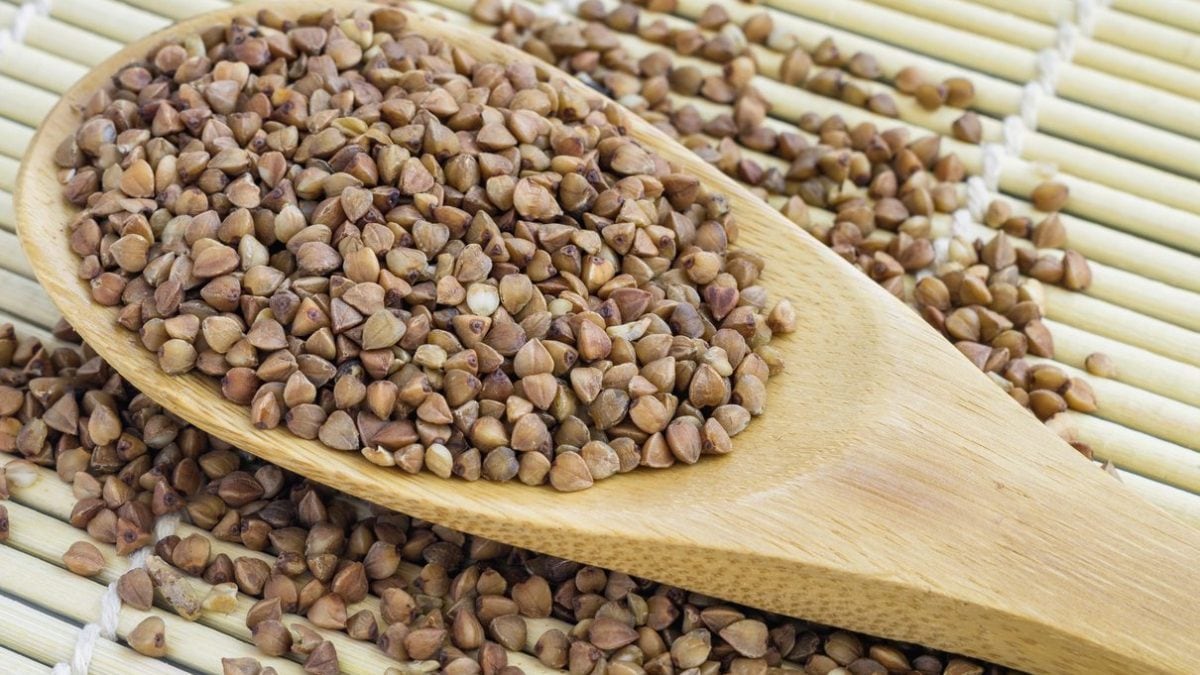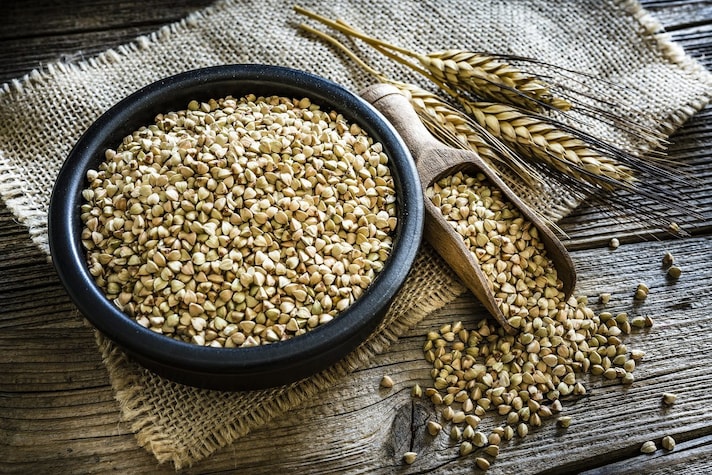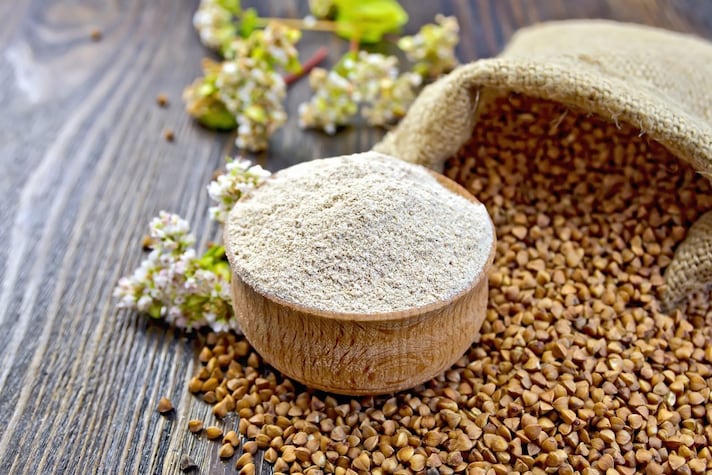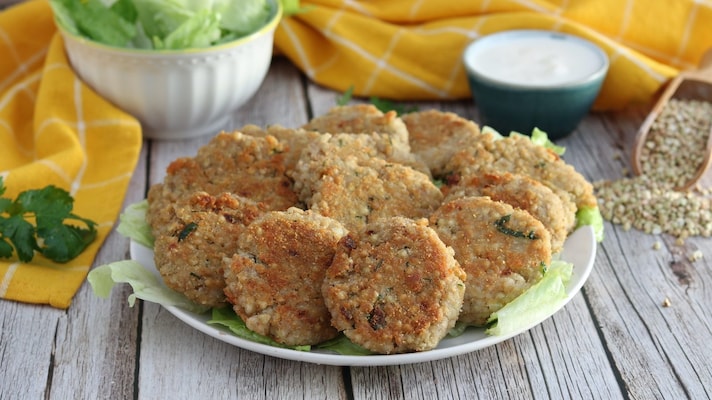
The name might be misleading: buckwheat, despite its name, is not a grain, but the seed of an annual herbaceous plant belonging to the Polygonaceae family. Native to Central Asia and cultivated in cold countries (in the U.S. it is typical of the Northern States), the product falls into the category of "pseudocereals," or those seeds that have characteristics very similar to those of cereals despite belonging to a different species.
Gluten-free and ideal for those with celiac disease or gluten intolerance, pseudocereals all boast an excellent nutritional profile, and buckwheat in particular is truly remarkable. With a delicate and distinctive flavor, it is composed primarily of complex carbohydrates and is considered a source of good-quality protein, as it contains eight essential amino acids. Rich in minerals, particularly potassium, calcium, and phosphorus, vitamins, and polyunsaturated fatty acids, it is a food with undisputed beneficial, antioxidant, and energizing properties. Like all other pseudocereals, it is gluten-free and has a high lysine content, an amino acid essential for the absorption of calcium in the digestive tract, which our body is unable to synthesize on its own.
As if that weren't enough, buckwheat is delicious and incredibly versatile in the kitchen: it's found in countless sweet and savory recipes from mountain areas. It can be used in its grain form (boiled in boiling water to absorb the moisture) or in flour form, and you can use it to prepare practically anything, from a fresh mixed salad to the pasta, from meatballs to cakes. Let's find out everything you need to know about this food and why you should always keep some in your pantry.
Buckwheat's Properties and Benefits
Buckwheat has been prized since ancient times for its numerous beneficial properties, making it an excellent ally for our health. Its rich nutritional profile speaks for itself: it has a moderate calorie content, approximately 343 calories per 100 grams, so it's not exactly "low," but it's lower than wheat flour and lower than other carbohydrates. It's composed primarily of complex carbohydrates, but is primarily recognized for its extremely high protein content of high biological value.

Buckwheat contains eight essential amino acids, particularly lysine, which is present in very high percentages (between 4% and 20%). Its nutritional profile is rounded out by a wealth of fiber and minerals, particularly calcium, iron, potassium, magnesium, and phosphorus, a good vitamin content, especially vitamins A, B, and B9 (folic acid), and the complete absence of cholesterol. How does all this translate into benefits for your body? Here are all the benefits of including buckwheat in your diet, as demonstrated by several scientific studies conducted and currently underway on this food's potential.
1. It is Gluten-Free and Has a Low Glycemic Index
Buckwheat's best-known characteristic is its natural gluten-free nature, making it ideal for those with celiac disease or gluten intolerances. It's also suitable for those who want to reduce gluten in their diet, but be careful not to eliminate it entirely, as it can lead to nutritional deficiencies (it's always best to consult a doctor before making any dietary decisions). Buckwheat also has a very low glycemic index and is low in sugar, making it suitable for diabetics.
2. Helps Regulate Cholesterol and The Cardiovascular System
Thanks to its high fiber content and the presence of rutin, a flavonoid with antioxidant and anti-inflammatory properties, buckwheat may help control "bad" cholesterol in the blood, keeping its levels low by limiting its absorption. Furthermore, the mineral salts it contains, particularly magnesium, also help control blood pressure, promote blood vessel dilation, improve blood flow, and thus strengthen the entire cardiovascular system.

3. Acts as an Antioxidant and Anti-Inflammatory
The flavonoids in buckwheat not only help lower cholesterol, but are also extremely useful in combating free radicals and cellular aging thanks to their strong antioxidant properties. Furthermore, rutin in particular also has many anti-inflammatory properties, especially affecting blood vessels. When combined with the fiber, vitamins, and other components of the seed, it helps reduce overall inflammation in the body.
4. Valid Help For The Intestine
Precisely because of its high fiber content, buckwheat is an excellent support for intestinal protection. Fiber, in fact, helps eliminate toxic substances and maintain a healthy and functional microbiota, thus helping with better digestion, avoiding abdominal bloating and preventing problems such as constipation.
5. Energy Source
Buckwheat is also often found in the diets of athletes and those with particularly active, tiring, or stressful lives. This pseudocereal is an excellent source of natural energy because it is rich in complex carbohydrates, which release energy gradually, and high-quality proteins, which provide a complete protein intake with essential amino acids. This combination makes it a nourishing and energizing food without causing glycemic spikes, with the added benefit of a high fiber, vitamin, and mineral content.

Buckwheat's Contraindications
Buckwheat is generally a safe product, but requires some precautions if you have certain specific medical conditions. This pseudocereal contains a high nickel content (1 mg per kg of food), so be careful when consuming it if you have this particular allergy, as it could cause an allergic reaction. Be careful when consuming it if you have a particularly sensitive gastrointestinal condition, as the fiber and oxalates could exacerbate digestive problems. Also be careful if you are taking anticoagulant or antiplatelet drugs: the rutin in buckwheat, although beneficial in many respects, may conflict with these medications.
;Resize,width=767;)
